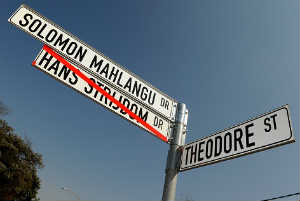The value of addresses to the economy, society and governance - a South African perspective

South Africa has started the process of developing standards for all forms of addresses such as a street address, postal address, and fixed abode for legal processes (e.g. opening a bank account). These standards have to deal with addresses in formal and informal areas, as well as urban and rural areas. The process has highlighted the value of addresses to the economy, society and governance, and we have found just how complex an address can be!
The paper presents examples that illustrate the benefits of addresses in South Africa, such as:
• Connecting households to utilities such as water, sewage, telecommunications and electricity;
• Routing emergency services, and providing assistance during disaster management;
• Allowing retail outlets to provide delivery services to their customers in all areas of the country;
• Postal delivery – government policy is to provide every citizen with mail delivery to their place of residence, as opposed to just centralized post boxes;
• Planning and execution of elections and household surveys such as the Census;
• Providing proof of residential address for opening a bank account with a financial services institutions (as required by legislation to combat money laundering); and
• Finding your friends and family!
Most importantly, South Africa’s Constitution gives every citizen the right to various services for which they need an address, e.g. utilities, education, health care, and social security. Addresses provide people with status: an address says that you are a recognized citizen of the country.
We will show examples of how newly allocated addresses have contributed to the local economy, society, and governance. We believe benefits are applicable in other countries as well.

Comments